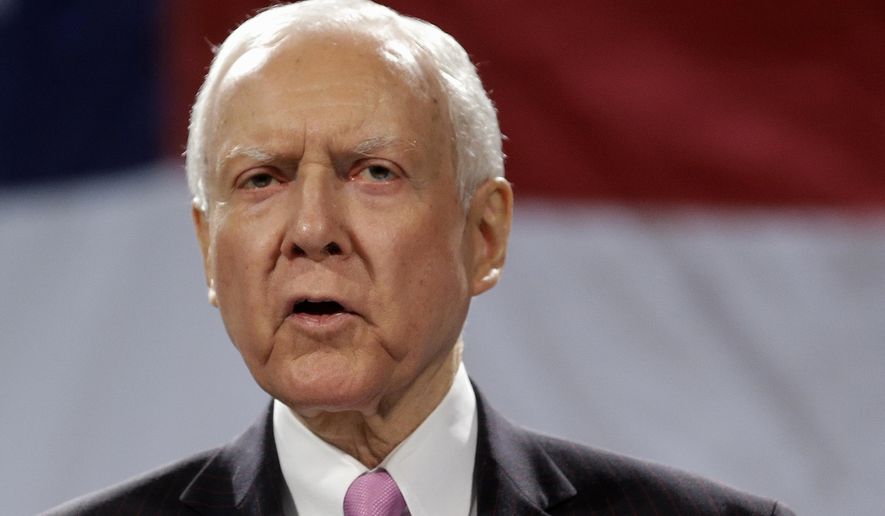President Obama’s unilateral pen-and-phone approach to governing has been aided by a decades-old secret memo that allows him to avoid economic scrutiny of some of the most intrusive rules and regulations his administration has issued, a top senator said Thursday.
Now Sen. Orrin G. Hatch, Utah Republican and chairman of the Finance Committee, has demanded Treasury Secretary Jacob Lew release the 1983 memorandum of understanding and defend the Reagan-era policy that has let Mr. Obama pursue changes on everything from corporate taxes to Obamacare without first giving a full heads-up to Congress.
“This non-public MOU between the Treasury and White House further cloaks the regulatory process in secrecy and decreases regulatory transparency at a time when the Executive Branch is attempting to achieve a great deal of policy through regulatory measures generally and tax regulations specifically,” Mr. Hatch wrote to Mr. Lew.
Under federal law, agencies are supposed to conduct a cost-benefit analysis on every “major” new regulation they release, and then give it to Congress ahead of time, so lawmakers get a chance to push back.
But since the 1980s, presidents have refused to comply when it comes to tax regulations, pointing to the 1983 MOU between the Reagan White House and the Treasury Department that concluded tax regulations aren’t “major” and rarely cost the economy, so they don’t have to be subject to the same strict scrutiny.
Given the rise of Obamacare and the increasing effort to shape the economy through tax regulations, Mr. Hatch said the memo has become a significant hurdle to transparency.
SEE ALSO: Obama tells student journalists Mitch McConnell is unfair
Mr. Hatch’s letter to Mr. Lew marks the opening of a new front as Congress continues to push back against Mr. Obama’s efforts to stretch the limits of presidential power.
Last week the Supreme Court heard oral argument to Mr. Obama’s 2014 deportation amnesty, in a case brought by 26 states. Meanwhile the House has sued arguing the president broke the law by spending money on Obamacare that Congress specifically prohibited.
Undeterred, Mr. Obama flexed his regulatory powers earlier this month when his Treasury Department issued new rules limiting the tax benefits from “inversions,” when companies move their headquarters overseas to avoid a crushing U.S. corporate tax burden. Republicans also say he’s tried to rewrite Obamacare through the use of Treasury regulations.
Mr. Hatch said releasing the 1983 memo would give “an honest accounting” of how deeply tax regulations reach into the economy.
The Treasury Department declined to comment on the request, saying it would respond directly to Mr. Hatch “in due course.”
Mr. Hatch set a May 12 deadline for the reply, and said if the department refuses to release the memo, it must explain why the details are being kept from the public.
SEE ALSO: Judge tosses Seattle ordinance requiring garbage-can searches for food waste
His demands come at a time when academics are debating the role of regulations in American government. Laws are written by elected members of Congress, while regulations, which are supposed to carry out the laws, are written by bureaucrats at agencies.
But they often produce bizarre outcomes.
Mr. Hatch in his letter cited one regulation that controls the type of font companies are allowed to use in the word “turkey” when they advertise “turkey ham.” Another regulation governs the shape of pineapple pieces in fruit cocktail.
• Stephen Dinan can be reached at sdinan@washingtontimes.com.




Please read our comment policy before commenting.